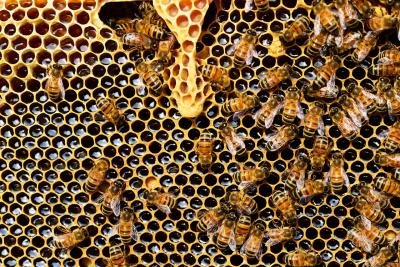As we previously reported, the Maryland House and Senate passed the Pollinator Protection Act in April, a bill calling for limiting the sale and use of pesticides containing neonicotinoids, chemicals shown to harm bee populations. As of May 27th, the bill has passed into law without Governor Larry Hogan’s signature, much to the pleasure of beekeepers and bee advocates, who feared the Governor might veto it.
Since the bill has taken effect in Maryland, as of January 1st, 2018 only state-certified pesticide applicators may use products containing these chemicals, hopefully greatly reducing the impact they have had on bee populations. The health of bee populations has become a significant point of concern nationwide, and especially in Maryland, where beekeepers were reported to have lost up to 61% of their colonies between 2014-2015.
Furthermore, in Connecticut last month the most comprehensive bill protecting pollinators was passed unanimously in both the Senate and House of Representatives. The bill now heads to the Governor’s desk for signature, and considering the widespread, bipartisan support, is very likely to become law. Similarly to Maryland’s Pollinator Protection Act, An Act Concerning Pollinator Health limits the use of neonicotinoids. Additionally, the bill provides new conservation efforts and improved habitats for bees.
As both the Pollinator Protection Act and An Act Concerning Pollinator Health are the first of their kind, many bee advocates hope that the stage has been set for more similar laws to be passed in other states as well.
What do you think? Have you contacted your local politicians about passing legislation to #savethebees?
Since the bill has taken effect in Maryland, as of January 1st, 2018 only state-certified pesticide applicators may use products containing these chemicals, hopefully greatly reducing the impact they have had on bee populations. The health of bee populations has become a significant point of concern nationwide, and especially in Maryland, where beekeepers were reported to have lost up to 61% of their colonies between 2014-2015.
Furthermore, in Connecticut last month the most comprehensive bill protecting pollinators was passed unanimously in both the Senate and House of Representatives. The bill now heads to the Governor’s desk for signature, and considering the widespread, bipartisan support, is very likely to become law. Similarly to Maryland’s Pollinator Protection Act, An Act Concerning Pollinator Health limits the use of neonicotinoids. Additionally, the bill provides new conservation efforts and improved habitats for bees.
As both the Pollinator Protection Act and An Act Concerning Pollinator Health are the first of their kind, many bee advocates hope that the stage has been set for more similar laws to be passed in other states as well.
What do you think? Have you contacted your local politicians about passing legislation to #savethebees?






